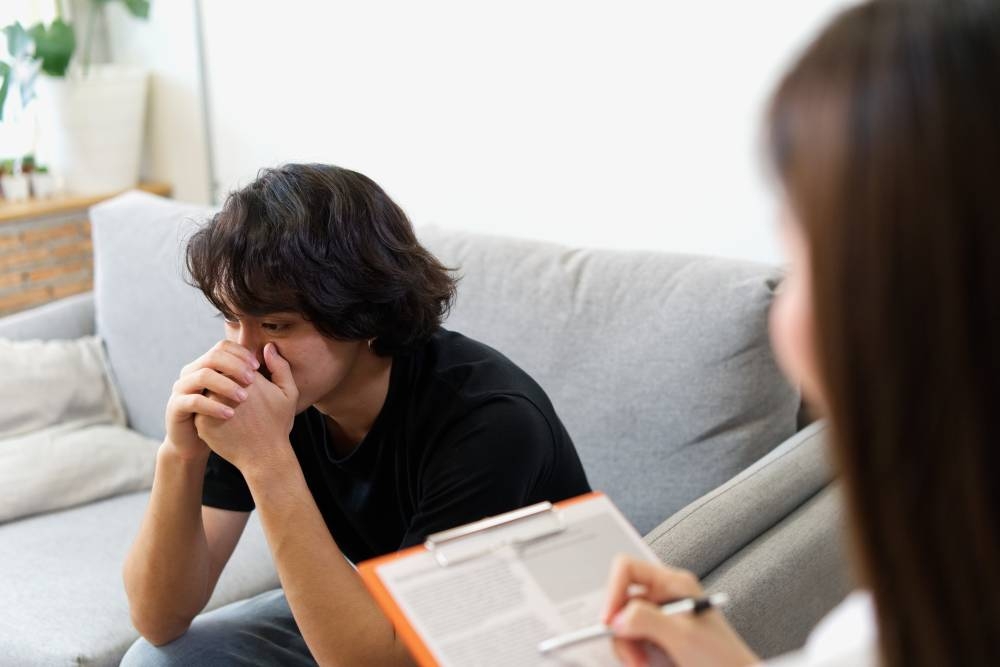Suicide decriminalisation: Focus should be on victims’ treatment, recovery - Experts

SHAH ALAM – The government’s move to decriminalise suicide attempts was lauded, and instead of ‘punishing’ the victims, experts believe that the government should focus on victims’ treatment and recovery instead.
Management and Science University criminologist Nadiah Syariani Md Shariff applauded the move as she agreed for the government to decriminalise attempted suicide as a crime.
She believed people with suicidal tendencies might feel like it was the best option for them at the time but the decision to act on the concept showed how serious the underlying issues were that drove the individual to the brink of suicide.
“Therefore, branding them as criminals after the suicide attempts failed does not help to solve the issues but makes it worse instead,” she added.
Nadiah commented there were many consequences of the act towards the immediate family and society and that attempted suicide should be viewed in a different light.
“Having the law in place puts fear among those who suffered silently, or the close family who know this problem; therefore, when it happens, it tends to be unreported.
“At the moment, no empirical finding proves that the suicidal rate decreases or increases once attempted suicide is decriminalised.
“However, at least, the individual does not have to worry about the legal predicament of attempted suicide, and they can openly seek the help they need without being labelled,” she told Sinar Daily.
Echoing Nadiah’s view, former Human Rights Commission of Malaysia (Suhakam) and Human Rights Consultant Jerald Joseph also agreed suicide was considered an extreme behaviour that could be brought on by a variety of factors and was closely related to the mental health of the individual.
He said that the last thing a survivor should deal with was being charged in court and jailed, which does not address the root cause of the person’s attempted suicide.
“The government should have a responsive unit to be involved with the victim that includes medical personal trainers, counselors or psychiatrist medical teams and regular monitoring with the family and environment where the person lives.
“Meanwhile, the Malaysian society also needs to view them as victims needing support and health from the government and the community”, he said.
Joseph also opined the police and media personnel must receive training on how to handle suicide with various sensitivity levels.
He also expressed his gratitude to the Malaysian government for recognising the colonial legacy of laws that are outdated and not up to date with international development.
“This is one example and I hope many other draconian laws also get updated soon,” he added.
Experts had called for the government to table the revision of archaic law Section 309 of the Penal Code at the next Dewan Rakyat sitting.
At the time, Section 309 of the Penal Code states that those who were unsuccessful in their suicide attempt can be jailed for up to a year or be fined, or both.
On Tuesday, Minister in the Prime Minister’s Department (Legislation and Institutional Reform) Datuk Seri Azalina Othman Said stated that the government intended to revise Section 309 to be more relevant and in line with the current developments.
Azalina had said that attempted suicide was a criminal offence imported from the Indian Penal Code by British colonialists and claimed that despite the United Kingdom abolishing the crime in 1961, Section 309 of the Penal Code still remains in Malaysian law.
She stressed that criminal punishment might not be the answer to mental health problems and that she was committed to revise Section 309 of the Penal Code.
The call to decriminalise suicide had been highlighted for several years.
In 2021, then Home Ministry and Attorney-General’s Chambers (AGC) agreed to abolish the crime of attempted suicide, which means that it would not be a punishable offence.
AGC was examining the legal options and implications of the decriminalisation, and also called for a holistic approach on the issue of suicide, however the section still remained on the Penal Code up until today.
This left the status of the decriminalisation of suicide to be questionable up until it was raised again by Azalina.
In September last year, then Health Minister Khairy Jamaluddin said that the decision on whether to decriminalise suicide was up to the Cabinet.
A memorandum for a moratorium on the prosecution and conviction involving attempted suicides had been handed over to the Cabinet and a study was supposed to be carried out by the AGC before any decision was taken.
The result would be discussed with stakeholders including Home Ministry and police.
In March last year, then minister Wan Junaidi Tuanku Jaafar said a study on proposed amendments to the law to decriminalise suicide attempts was almost finished and would be submitted to the Cabinet for approval.
He said the government had, via the AGC, taken the initiative to study laws related to attempted suicide and abetment of such attempts, due to statistics showing the growing number of attempted suicides across all ages.
It was reported that Malaysia saw an 81 per cent increase in suicide cases in 2021, with 1,142 cases reported last year as compared to 631 cases in 2020.
It was also reported that since March 2020, the Health Ministry received more than 307,000 calls of which 74.3 per cent were made by individuals who needed emotional support and counselling due to chronic stress, depression as well as anxiety due to the Covid-19 pandemic.
For those who needed psychosocial support, counselling for stress, anxiety, and loss of hope, contact Women, Family and Community Development Ministry Talian Kasih at 15999 or reach out to The Befrienders Kuala Lumpur at 03-7627 292.
Download Sinar Daily application.Click Here!















